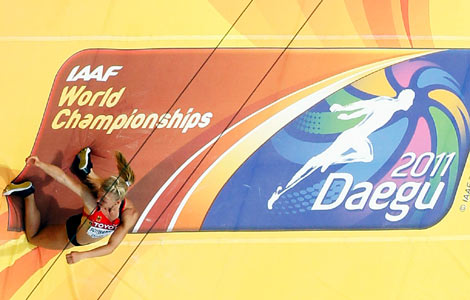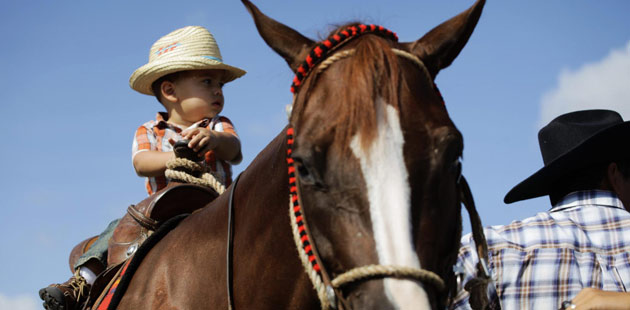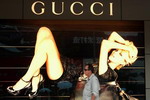Chinese films explore ways to compete with Hollywood
Updated: 2011-08-30 11:29
(Xinhua)
|
|||||||||||
BEIJING - For Hollywood, the Chinese film market presented a splendid box-office report this summer.
And among the top five box-office hits of all time in China, three are from Hollywood: "Avatar" with $182 million, "Transformers: Dark of the Moon" with $145.5 million and "Kung Fu Panda 2" with $91.5 million.
However, "Legend of a Rabbit," a 3D animated movie produced completely by a Chinese team and aimed at competing with the best of the West, grossed only 16.2 million yuan ($2.5 million) in the Chinese market last month after its release on July 11.
The $18.8million 3D production, which took more than 500 animators three years, on Sunday shared the Best Animation Award of Huabiao, China's highest government honor in the film industry, along with three other animations.
The different performances of China's "Rabbit" and the United States' "Panda" in the world's fastest growing movie market, whose box office gross increased by 64 percent last year to $1.5 billion, also mirrored the wide gap between the box-office receipts of the two countries' films in each other's market.
In the last few years, China has become a key destination for big Hollywood films. "Avatar," "Transformers: Dark of the Moon," "Inception" and "2012" all grossed more ticket numbers in China than they did anywhere else outside the United States.
However, Chinese films, even the blockbusters at home such as the earthquake drama "Aftershock," could not make a success on the US market.
Successes rare for Chinese films in US market
Chinese-made films were first launched in North America in the 1980s.
However, successes had been rare until December 2000, when "Crouching Tiger, Hidden Dragon," a kungfu drama directed by Ang Lee, hit the screen.
As the most profitable Chinese film, the movie, released by Sony Pictures Classics, grossed a total of $28 million in roughly 2,000 theaters in the United States.
Almost four years later, "Hero," a smash directed by Zhang Yimou and distributed by Miramax, made another wave by garnering $3.7 million in ticket sales, making it the second most profitable Chinese film in the US market and a No 1 movie at the US box office for two weeks in a row.
But still, many Chinese films have met with failures in terms of box office record after brief showings in a small number of US theaters.
"Aftershock," which grossed over $100 million in China, earned only $60,954 in 25 US theaters. John Woo's $80million "Red Cliff" netted merely $627,047 in 42 US theaters in 2009.
China Lion Film Distribution, a Los Angels-based company that distributes Chinese-language films via an exclusive deal with AMC, North America's No 2 theater chain, for the US and Toronto markets, has distributed several Chinese-language films in the United States over the last year, including "Aftershock," "The Warring States," "A Beautiful Life" and "If You Are the One II."
"If You Are the One II," a romantic comedy directed by Feng Xiaogang, earned $427,000, with more than 90 percent of the viewers being Chinese or Chinese Americans.
Such earnings, humble even by Chinese standards, are already much better than other Chinese films released in the United States. Most of the Chinese-language films were just screened in around 20 US theaters. Over the decade, although Chinese films have increased their presence in US theaters, most US moviegoers still tend to patronize Chinese martial arts films rather than straight dramas or comedies.
Those Chinese films that are not kungfu movies are usually screened in "art house" cinemas in major cities -- the main location for foreign-language films from around the world.
"Chinese films in the United States are subject to market forces," Richard L. Anderson, an Oscar winner in sound effect, told Xinhua. "The US distribution companies are audience-driven. They buy what they think they can sell here."












